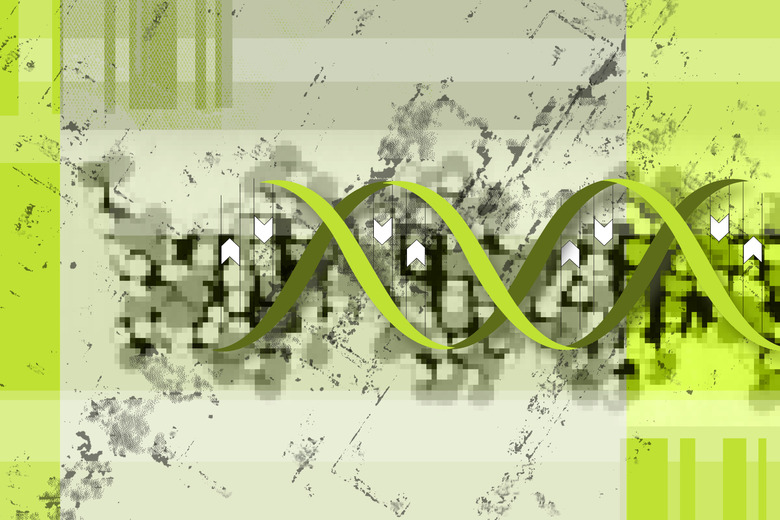3 Kinds Of Mutation That Can Occur In The DNA Molecule
The DNA in each of your cells is 3.4 billion base pairs long. Every time one of your cells divides, each one of those 3.4 billion base pairs must be replicated. That leaves a lot of room for mistakes — but there are built-in correction mechanisms that make mistakes unlikely. Still, sometimes chance leads to errors, and sometimes environmental hazards can cause mutations, too. Mutations can be classified in several ways: their size, their specific form or their effect, for example.
Mistakes
Mistakes
The longest book in the world, according to Guinness World Records, is "Remembrance of Things Past," by Marcel Proust. It has 9,609,000 characters. Your chances of copying that book perfectly are pretty small. Now imagine copying it more than 350 times without a mistake. That's comparable to what your cells need to do every time they divide — and your cells have divided trillions of times. It's no wonder that mistakes happen here and there, by chance. Some chemicals increase the chances of error, as does exposure to ionizing radiation such as X-rays.
Mistakes in copying DNA are called mutations. Mutations can be classified many different ways. Somatic cell mutations, for example, are those that take place anywhere in the cells of most of your tissues and organs. Germ-line mutations result in mistakes in sperm or egg cells.
The Genetic Code and Substitution
The Genetic Code and Substitution
DNA consists of a long string of units called bases, usually referred to by the letters T, G, C and A. The order of the bases carries the information in DNA, information that controls the structure of proteins in your body. The code for constructing proteins is in 3-base sequences called codons.
One type of mutation is a substitution. That's when what should be one base — say, a C — is built instead as another base — say, a T. Substitutions can have three consequences. If a substitution makes no difference, it's called a silent mutation. If a substitution changes the amino acid in a protein it's a missense mutation. If a substitution screws things up so badly the protein can't be built, it's a nonsense mutation.
Insertions and Deletions
Insertions and Deletions
Sometimes the replicating molecular machinery introduces a kink in the DNA. When a copy is made, it can have an extra base inserted, or it can skip one. Those are called, respectively, insertion and deletion mutations. Insertions and deletions can cause a frameshift. That's when the 3-base code "shifts," making each subsequent codon appear to start with the second or third base, instead of starting with the first. Frameshifts usually change at least several amino acids and introduce a premature "stop signal" to the protein-synthesizing process, so they're likely to produce nonsense mutations.
Big Mistakes
Big Mistakes
Substitutions, insertions and deletions are all examples of point mutations — errors introduced in a single location on a DNA molecule. Sometimes the errors can be much bigger. Chromosome mutations, also called gross or gene-level mutations, involve errors that move entire sections of a DNA molecule. Translocations are shifts in the location of a chunk of DNA. Inversions are the result of the "flipping" of a section of DNA. Duplications consist of an extra copy of a gene making its way into a molecule of DNA. Although these errors sound serious, they aren't always detrimental. Without mutation, evolution would not have produced the great variety of life that inhabits Earth — the only living organism might be a kind of microbe.
Cite This Article
MLA
Gaughan, Richard. "3 Kinds Of Mutation That Can Occur In The DNA Molecule" sciencing.com, https://www.sciencing.com/3-kinds-mutation-can-occur-dna-molecule-21441/. 24 April 2017.
APA
Gaughan, Richard. (2017, April 24). 3 Kinds Of Mutation That Can Occur In The DNA Molecule. sciencing.com. Retrieved from https://www.sciencing.com/3-kinds-mutation-can-occur-dna-molecule-21441/
Chicago
Gaughan, Richard. 3 Kinds Of Mutation That Can Occur In The DNA Molecule last modified March 24, 2022. https://www.sciencing.com/3-kinds-mutation-can-occur-dna-molecule-21441/
